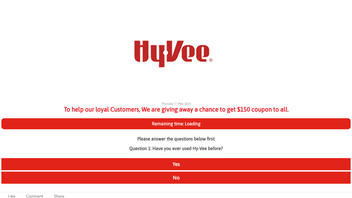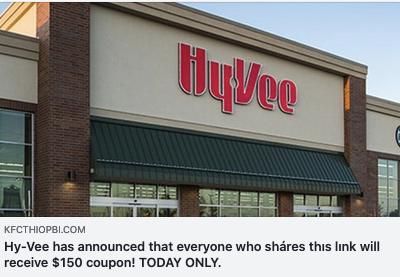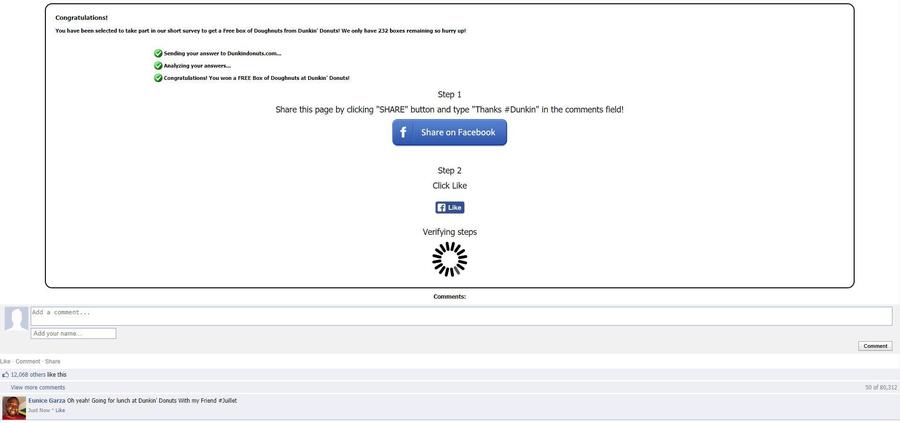
Did Hy-Vee announce that everyone who shares a link will get a $150 coupon? No, that's not true: a scam website is luring visitors by promising free merchandise in exchange for completing surveys but the whole thing is a scam designed to steal personal information. The setup is similar to earlier scams targeting different brands before.
The scam appeared in a link (archived here) where it was published on May 6, 2020 under the title "Hy-Vee has announced that everyone who shares a link will get a $150 coupon". It opened:
To help our loyal Customers, We are giving away free $150 coupon to all.Please answer the questions below first:
Question 1: Have you ever used Hy-Vee before?
People who saw the link on Facebook saw this:
The site is part of a larger network of scam websites that all operate in the same manner. First three questions are asked, typically asking if you are satisified with some brand, if you have used their product or if you would recommend it to others. Three possible answers are offered each time "Yes", "No" or "Don't remember".
No matter what answers are given, visitors are redirected to a screen that looks like this, inviting them to share and like the page on Facebook to claim the prize:
The comment form at the bottom is also fake: comments are automatically appearing but they do not come from real people, the whole thing is scripted: if the page is reloaded the same comments start appearing again. Clicking the share button does bring up a real share popup from Facebook but it does not share the exact URL of the page: it varies the random-looking string of letters and numbers at the end so that to Facebook it will look like a new and different article that is being shared. This makes it harder to detect and do something about it because each individual link needs to be individually reported and taken down.
Clicking the like button takes people through a series of redirects via various pages, probably depending on which ads or scams the people behind the site need to promote at the time. But no prize will show up at your door in the end.
The scammers behind the site regularily launch new sites targeting different brands and businesses but they all look similar. Earlier versions we spotted were aimed at Dunkin' Donuts, JetBlue, Starbucks, Costco, Little Caesars, Alaska Airline and Delta Airlines.



















